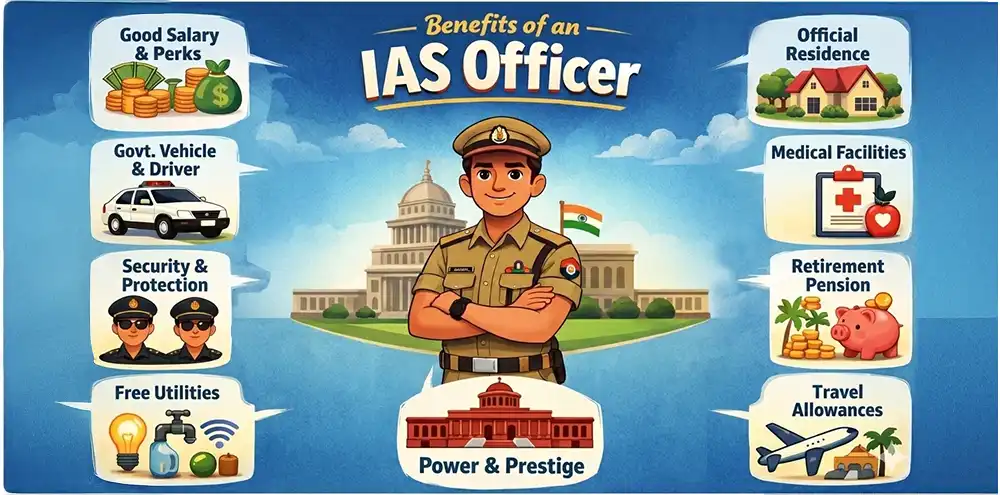Redefining Global Governance at the Summit of the Future: Empowering the Global South
This analysis of Mukul Sanwal’s op-ed titled “Bridging the Chasm of Global Inequality” in The Hindu (September 30, 2024) highlights “The Summit of the Future” (held at the United Nations on September 22-23, 2024) emphasises the critical need to reform global governance by amplifying the voices and addressing the needs of the Global South, ensuring fairer representation and collaboration in tackling urgent global issues like climate change, digital inequality, and economic disparities.
The concept of global governance has always centred on how nations come together to solve issues that affect everyone, like climate change, poverty, and technological advancement. However, over the years, the Global South—comprised of developing nations in regions such as Africa, Asia, and Latin America—has often felt sidelined in these discussions. This imbalance is largely a legacy of colonialism and the unequal power structures that emerged after World War II. Today, there is a growing movement toward reshaping global governance to be more inclusive, with a particular focus on prioritising the needs of the Global South in a rapidly shifting world order. This analysis shows how the Summit of the Future, held in September 2024, marked a pivotal moment in this envisaged transformation, setting the stage for a more equitable and representative global governance system that empowers the Global South.
The Summit of the Future: A Step Toward Change
A crucial moment in this shift occurred at the Summit of the Future, held in September 2024. This gathering of world leaders aimed to address major global challenges, like digital inequality, climate change, and economic disparities. The outcomes of this summit—such as the Pact for the Future and initiatives like the Global Digital Impact initiative—set the stage for rethinking how the world can work together more equitably.
One of the most important ideas that came out of the Summit was the need to focus on the Global South. Developing nations have long struggled with issues like debt, inadequate representation in international organisations, and unequal trade relationships. These challenges keep them at a disadvantage compared to developed nations, especially those in the West. The Summit provided a platform for the Global South to voice their concerns and advocate for a more balanced system.
Historical Context: The Roots of Inequality
The current inequalities in global governance can be traced back to colonialism. During this era, Western powers exploited countries in Africa, Asia, and Latin America for resources, leaving these regions impoverished and underdeveloped. Even after gaining independence, many of these nations continued to face economic and political challenges that hindered their ability to fully participate in global governance.
For example, the Group of Seven (G7), which includes the world’s wealthiest nations, was established in the 1970s as a platform for Western powers to control global discussions. The policies and decisions made by the G7 and similar institutions, like the United Nations (UN) Security Council and the International Monetary Fund (IMF), often do not serve the best interests of developing countries. This imbalance in power and representation remains a significant barrier to true global cooperation.
The Global South’s Growing Voice
Despite these challenges, the Global South has not remained silent. In recent years, there has been a noticeable shift in global governance, with developing nations pushing for greater influence. India, China, Brazil, and South Africa, as members of the BRICS group, have been at the forefront of this effort. BRICS represents a coalition of emerging economies that challenge the dominance of Western powers. The recent expansion of BRICS to include nations like Iran, Egypt, and Ethiopia signals its growing importance as a voice for the Global South.
At the Summit of the Future, countries like India took a leading role in advocating for the needs of developing nations. India, for example, called for reforms to international institutions like the UN Security Council, arguing that these bodies need to be more representative of today’s world. India also pushed for stronger climate action and more support for the Global South in areas like technology and economic development.
Addressing Climate Change: A Major Priority
One of the key issues discussed at the Summit of the Future was climate change. Developing countries, especially in the Global South, are some of the hardest hit by climate-related disasters, such as floods, droughts, and extreme weather. However, these countries have historically contributed the least to global carbon emissions.
To address this, the Summit called for more climate finance to help developing nations adapt to the impacts of climate change. This means providing more money and resources to countries that lack the financial capacity to protect themselves from natural disasters. For instance, many developing countries are already dealing with massive debt burdens, which limits their ability to invest in climate adaptation. According to recent data, developing nations collectively owe $29 trillion in public debt, with annual interest payments amounting to $847 billion. Such financial constraints make it nearly impossible for these nations to tackle climate challenges on their own.
India, one of the largest and most vocal countries in the Global South, strongly supported these climate finance initiatives. At the Summit, India emphasised the responsibility of developed countries to contribute more to these efforts, given that they have historically been the biggest polluters.
Redefining Prosperity: Beyond GDP
Another important discussion at the Summit revolved around how the world measures progress. Traditionally, Gross Domestic Product (GDP) has been the standard measure of a country’s success. However, GDP only looks at economic output and does not take into account factors like environmental sustainability or social well-being.
The Summit proposed redefining prosperity to include sustainability metrics, which would encourage countries to focus on more than just economic growth. This shift is especially important for developing nations, where issues like access to clean water, education, and healthcare are just as critical as financial growth. By measuring success in a more holistic way, countries can pursue development paths that are better for people and the planet.
India, again, was a strong supporter of this idea, advocating for a broader understanding of development that includes environmental and social factors. For India, this approach aligns with its belief that economic growth should not come at the cost of the environment or the well-being of future generations.
Digital Cooperation: Bridging the Divide
The digital divide between developed and developing nations is another significant issue that was addressed at the Summit. As the world becomes increasingly digital, access to the internet and technology is critical for economic participation. However, many countries in the Global South still lack the infrastructure to fully engage in the digital economy.
To tackle this, the Summit launched the Global Digital Impact initiative, which aims to ensure that all countries, especially those in the Global South, can benefit from digital technologies like artificial intelligence (AI) and the internet. One of the goals of this initiative is to achieve universal internet access by 2030, ensuring that people in remote areas, schools, and hospitals have the connectivity they need.
India played a major role in pushing for this initiative, given its own efforts to expand internet access to rural areas. India also advocated for a fairer system of digital governance, where developing countries have an equal say in how technologies like AI are regulated and used. By ensuring that the benefits of digital tools are shared equitably, the Global South can participate more fully in the global economy.
The Path Forward: Overcoming Challenges
While the Summit of the Future laid important groundwork for reshaping global governance, there are still many challenges ahead. One of the biggest obstacles is the institutional inertia of global organisations. Many of these institutions, like the UN and IMF, have been operating in the same way for decades, making it difficult to introduce new ideas or reforms that benefit the Global South.
Another challenge is balancing the needs of today with the demands of tomorrow. Developing countries face urgent problems like poverty and healthcare crises, which require immediate attention. At the same time, they must also plan for long-term issues like climate change and resource scarcity. This balancing act can be difficult, especially when resources are limited.
Furthermore, geopolitical tensions between nations can slow down progress on global initiatives. Disagreements over trade, climate policies, and international governance can make it hard to achieve the cooperation needed to implement meaningful reforms.
Despite these challenges, the Global South, led by countries like India, China, and Brazil, is pushing forward. The rise of BRICS and the increasing influence of developing nations signal that the world is moving toward a more multipolar order, where power is more evenly distributed.
Conclusion: Toward a More Inclusive World Order
The Summit of the Future marked a significant step toward redefining global governance. By prioritising the needs of the Global South and advocating for more equitable representation in international institutions, the Summit highlighted the importance of inclusivity in solving the world’s most pressing issues.
For too long, the voices of developing nations have been marginalised in global governance. But as the world faces increasingly complex challenges—like climate change, technological disruption, and economic inequality—the need for cooperation and fairness has never been greater. The rise of the Global South, supported by initiatives from the Summit, offers hope for a more balanced and just world order.
In the years to come, the success of global governance will depend on how well nations can work together to address these shared challenges. The Summit of the Future laid the foundation for this cooperation, but much work remains to be done to ensure that the Global South is not just a participant in global governance, but a leader in shaping its future.




